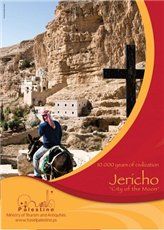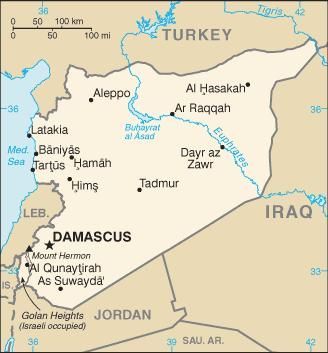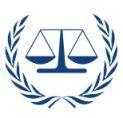 Everything you need to know about this weekend’s coverage of Israel and the Mideast.
Everything you need to know about this weekend’s coverage of Israel and the Mideast.
The Israel-Iran rivalry managed to take a back seat to the Syrian uprising and Palestinian unity developments. And just why is the Swedish government funding a NGO brochure accusing Israel of ethnic cleansing and apartheid?
Peace Process
• A Palestinian culture vulture confirms that UNESCO membership opens up political opportunities. Maan News writes:
But Yakhlaf, who used to be Minister of Culture and is a well known Palestinian novelist, stressed that Palestinian ambitions within UNESCO would remain merely cultural. “But we can achieve political goals through cultural means,” he added.
• Haaretz picks up on an eye-opening academic study: Palestinian businessmen investing in settlements and in Israel itself. By the numbers:
- 16,000: Palestinian businessmen investing in Israel and settlements.
- $2.5 billion: Palestinian money invested in Israel and settlements in 2010.
- 213,000: Jobs that would’ve been created in the West Bank had that money been invested there.
• A Yisrael HaYom op-ed by David Weinberg slams the Palestinian record on sites of religious and/or archeological significance. This includes the Temple Mount, Church of the Nativity, Gaza churches, Rachel’s Tomb, Joseph’s Tomb, plus synagogues and holy sites in Nablus, Jericho and Gush Katif, Tulul Abu el Alayiq, Naaran, and Eshtemoa.
I wonder what Weinberg would make of a Palestinian entry winning a UN World Tourism Organization poster competition. Disingenuous?According to Maan News:
The winning poster depicts Jericho’s St. George Orthodox Monastery in Wadi Qelt, a West Bank oasis that is also home to one of the oldest synagogues.

• Gaza banks were ordered to pay millions of dollars in back fees and fines by a Hamas court for refusing to acknowledge the Islamist organization’s taxing power. According to the NY Times, the issue comes up at a particularly sensitive time: Abbas and Mashaal are due discuss unity in the coming days.
Bank officials, who boycotted the judicial hearings, said the decision, handed down by a lower court earlier this week, might force them to shut down temporarily, at least, further reducing access to money in this isolated coastal enclave.
• Palestinian unity efforts are increasingly becoming a function of the Arab Spring. Interesting analysis at The Independent:
There are good reasons why further reconciliation might be tempting now. For Hamas, another strong election showing would give it new political leverage in the West Bank. If the Muslim Brotherhood do well in the coming Egyptian elections without inviting international ostracism, it will be more difficult to argue that a boycott of the Palestinian Authority is justified by the Islamist Hamas having an influence in it, particularly if Mr Meshal reinvents Hamas as the Palestinian Muslim Brotherhood in putative May elections.
Reunification between the factions would probably please Egypt, which Mr Meshal would surely like to do, given how uncomfortable his Syrian base has become.
See also this Christian Science Monitor analysis of the unity efforts:
The fresh effort at reconciliation highlights an apparent contradiction. Israel considers Abbas’s potential cooperation with Hamas as collusion with a sworn enemy, but many observers believe a peace deal would be impossible to implement so long as Hamas and Fatah remain estranged, one controlling Gaza Strip and the other the West Bank.
• Quote of the Day: Douglas Anthony Cooper (Huffington Post) on pro-Palestinian “freedom riders” invoking the name of Martin Luther King Jr.:
Until you renounce rather than elect terrorists — who refer approvingly to the world’s most notorious anti-Semitic text — your attempts to co-opt the name of Martin Luther King are going to be a problem. That problem is fraudulence.

BTW, The Age reprinted Sheera Frankel’s lousy coverage of Freedom Riders, prompting an op-ed in Australia’s J-Wire slamming the piece. Emily Gian based a chunk of her criticism on HonestReporting’s critique.
• Ex US envoy George Mitchell: Palestinians should settle for less. This from the Rockland Free Press (Maine) via Yisrael Medad:
“We negotiated that and the Israeli leaders agreed to halt new housing in the West Bank for 10 months. It was much less than what we asked for but more than anyone else had done. The Palestinians rejected it as worse than useless. They were strongly opposed to it. Then nine months on, there were negotiations for a couple of weeks that were discontinued by the Palestinians on the grounds that Israel wouldn’t continue the settlement freeze. What had been less than worthless a few months earlier became indispensable to continue negotiations.”
The Palestinians will not get 100 percent of what they want. It is not attainable, he said. The question is: will they negotiate to get a stake in their future or continue to fight for a past that is out of reach?
• CNN‘s Fareed Zakaria sat down with Ehud Barak to discuss whether Obama supports Israel. Spoiler alert (don’t worry, it’s predictable):
He is extremely strong supporter of Israel in regard to its security.
Arab Spring
• According to Turkish media reports, Turkey, the Arab League and Syrian opposition groups are working out an arrangement for Ankara to enforce a no-fly zone over northern Syria.
The Sabah daily had suggested the aim of the no-fly zone would be to turn Aleppo into a Syrian Benghazi, like the Libyan city that functioned as the military and political base of the Libyan opposition before the unrest finally calmed last month. According to the information the daily gathered on this request by the Syrian opposition, NATO would not be included in the process and countries remaining in close contact with the Assad regime — China and Russia — would be persuaded to join the no-fly zone agreement as the death toll increases in the country.
But there’s the matter of Russian warships entering Syria’s territorial waters — to deter foreign intervention. 
• Early unconfirmed reports that a major Baath party building in Damascus was hit by several rocket propelled grenades. AP writes:
Syria’s uprising against Assad has grown more violent and militarized in recent weeks, as frustrated protesters see the limits of peaceful action.
• Assad dug in his heels in this Sunday Times of London interview:
In an exclusive interview with The Sunday Times, Assad said attacks on the Syrian army last week showed he was facing armed operations, not peaceful demonstrations.
“The conflict will continue and the pressure to subjugate Syria will continue,” he said. “Syria will not bow down.”
He pledged that he would personally fight and die to resist foreign forces.
 • Saif al-Islam Gaddafi was captured by rebels. A Reuters journo was on the plane that flew Gaddafi to the town of Zintan. The caveat?
• Saif al-Islam Gaddafi was captured by rebels. A Reuters journo was on the plane that flew Gaddafi to the town of Zintan. The caveat?
After the brief exchange with the heavily bearded prisoner, Libyan Reuters journalists who have met Saif al-Islam said they had no doubt that was indeed him – though he repeatedly declined to confirm his identity outright.
The International Criminal Court wants him handed over for a war crimes trial, but Libyans may prosecute him at home.
• Just eight days before Egyptian elections, protesters in Tahrir Square clashed with security forces. According to the BBC, two protesters were killed and “hundreds” injured. Protesters were demonstrating against plans to constitutionally exempt the military from civilian oversight.
• This from The Lede: Reuters will no longer let reporter who worked for Saleh cover Yemen.
Rest O’ the Roundup
 • Sweden spent $104,600 of taxpayer money to fund an NGO’s ugly brochure, titled “Colonialism and Apartheid – the Israeli occupation in Palestine.” YNet News writes:
• Sweden spent $104,600 of taxpayer money to fund an NGO’s ugly brochure, titled “Colonialism and Apartheid – the Israeli occupation in Palestine.” YNet News writes:
The brochure’s authors accuse Israel of racist legislation, ethnic cleansing, racial segregation, establishing an Apartheid regime in the territories, and bombing Palestinian civilian homes. Furthermore, the brochure calls for a boycott of the Jewish state.
• The West Bank village of Imneizil stands to lose its solar panel power generators to Israeli demolition orders. Unfortunately, Sydney Morning Herald reporter Ruth Pollard doesn’t quote any Israeli voices explaining why the panels — along with a classroom and a toilet block at the village school — have standing demolition orders.
Presumably illegal construction, but that would ruin the mood created by all the Israel critics bringing balance to the Israeli bureaucratic juggernaut angle. Pollard’s diligence includes fresh quotes from the village head, a mother, an NGO called “Ecumenical Accompaniment Program in Palestine and Israel,” and the UN’s Special Rapporteur on adequate housing (yes, there’s a rapporteur for that too).
• How can it be that nobody in the world’s most-populated Muslim country told these people about the BDS movement? Indonesians study Israeli mass catastrophe system:
“In the course, we learn how to build a system for operating in emergency, trauma and MCE. We did not come to seek medical information, but guidance on how to get organized in case of these situations,” said neurology professor Andi Asadul Islam, from Hassan Udim University in Makassar, Indonesia. “Rambam’s system for trauma is the best there is, and we can learn a lot from it.”

• You’ll like this Johannesburg Times dispatch (via Elder of Ziyon): Israelis Turn Holy Land Into Economic Miracle:
. . . Israel’s example of “performance through adversity” contains numerous lessons for developing countries that shouldn’t be ignored. Contrary to the highly politicised caricatures of Israel as a US protectorate milking the Holocaust for all it is worth, nearly all its achievements stem from the firm conviction that their fate is not someone else’s responsibility.
• The Independent picks up on the story of army reservist Haim Har-Zahav. He raised a furor with a September blog post (in Hebrew) describing how settlers attacked Israeli soldiers in “price tag attacks.”
• Israel’s ambassador to Egypt returned to Cairo for the first time since a mob stormed the embassy. AP cautions against reading too much into this moment:
Israel’s foreign ministry said Levanon is slated to retire shortly and that this visit is merely a farewell for him. There are no immediate plans to return an ambassador.

